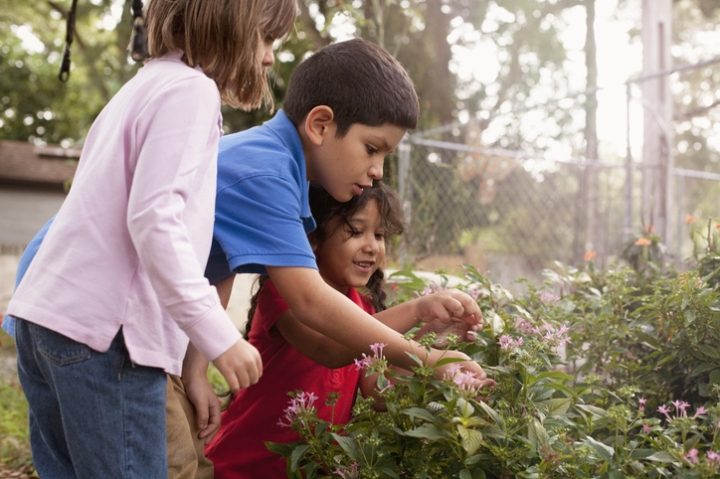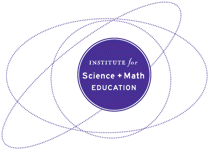Using science investigations to develop caring practices for social-ecological systems

Why It Matters To You
- Educators should create opportunities for learners to build relationships with various more-than-humans in local ecosystems and support inquiry processes that derive from learners’ concern and care for their relations.
- District staff & PD Providers should help educators learn about local flora and fauna and engage through place-based education to support learners’ building of multispecies relationships.
- School leaders should ensure that educators have sufficient time, space, and resources to engage learners in STEM field investigations.
What is the Issue?
How can we be more present for other species at a time of ecological devastation? Developing deep commitments to the human and more-than-human inhabitants of ecosystems is crucial for cultivating students’ caring knowledge and practices within the escalating challenges of the climate crisis. More-than-humans are typically represented in STEM curricula as objects of observation or utility rather than dynamic beings with rights to act and be recognized. All learners should build interdependent, caring relationships with more-than-humans focused on shared thriving to promote ecological identities, deep STEM learning about local places, and responsibilities.
Authors:
BY RACHEL HAN AND PHILIP BELL | JUNE 2019
Reflection Questions
- Reflect on your relationships with human and more-than-human inhabitants of local ecosystems. How can you model for students how to build similar multispecies relationships?
- How are your students currently building sustained relationships with the more-than-human inhabitants of local ecosystems?
- How can you provide learning opportunities to students so that they learn about the interconnectedness and dynamics of ecosystems and how to engineer thriving multispecies communities?
Things to Consider
- Scientific and popular texts often talk about nature and culture as distinct, separate things (e.g., images of nature with people looking down on pristine natural settings). In contrast, scientific studies have repeatedly shown that human and natural actors are tangled up with each other and are often in interaction, or in nature-culture relations.
- Children must have sustained, positive experiences with nature starting from the earliest years. This builds their understanding of themselves as connected, embedded beings who are part of nature rather than apart from it. Meaningful early experiences with the natural world are a key catalyst for the development of ecological commitments, ethics, identities, and practices.
- Young learners are naturally inclined toward curiosity, perspective-taking, and empathy for more-than-humans. This supports them in building multi-species relationships through scientific inquiry, storywork, role play, dramatization, sensorimotor play, music, visual arts, dance, gestural modeling, caregiving, and taking action to protect, recuperate, or sustain a local ecosystem.
Attending to Equity
- Center multispecies justice—along with social justice—in science investigations. Ecosystem models often privilege human perspectives and interests. Disrupt human exceptionalism by attending to the concerns of a range of different species.
- Attend to learners’ diverse sensemaking and relationship-building practices in more-than-human worlds and support navigation of different ways of knowing.
- Provide multiple approaches to building multispecies relationships, including culturally diverse exemplars of multispecies relationships, different sensory and embodied experiences, and various discourse patterns and activity structures. These human-nature engagements support wholeness, wellness, and community goals for youths’ learning.
Recommended Actions You Can Take
- Create rich opportunities for scientific inquiry for all students through outdoor investigations. Building multi-species relationships enables learners to identify more-than-human qualities, actions, and interactions that can serve as anchor phenomena for investigations.
- Promote multispecies relationships through practices of observation, attentiveness, receptivity, inquiry, and generating caring responses to relational partners. For example, while exploring the effects of pollution on an ecosystem students can learn about ecosystem dynamics, explore multiple species’ perspectives, brainstorm responses, and take action. Students can learn how to engage in science practices in caring, ethical, and responsive ways.
- Encourage learners to attend to the interconnectedness and mutual dependency of earth systems and human activities (see Core Idea ESS3). Support learners in understanding how their actions are embedded in webs of consequentiality, including how human actions significantly impact global systems and processes and how humans depend on care and sustenance from more-than-humans.
- Design sustained, transdisciplinary inquiry-based learning opportunities around ecological caring relationships that are significant for learners and their communities. Build partnerships with local organizations and community members to incorporate the ways of knowing and multi-species relationships valued in learners’ families and communities. Examples: here, here, here, here, and here.
ALSO SEE STEM TEACHING TOOLS
- #11 Indigenous STEM Ed
- #12 Teaching Climate Science
- #20 Field STEM Investigations
- #57 Place-based Science Ed
STEM Teaching Tools content copyright 2014-22 UW Institute for Science + Math Education. All rights reserved.
This site is primarily funded by the National Science Foundation (NSF) through Award #1920249 (previously through Awards #1238253 and #1854059). Opinions expressed are not those of any funding agency.
Work is licensed under a Creative Commons Attribution-ShareAlike 4.0 Unported License. Others may adapt with attribution. Funded by the National Science Foundation (NSF). Opinions expressed are not those of any funding agency.


 Email Feedback
Email Feedback


